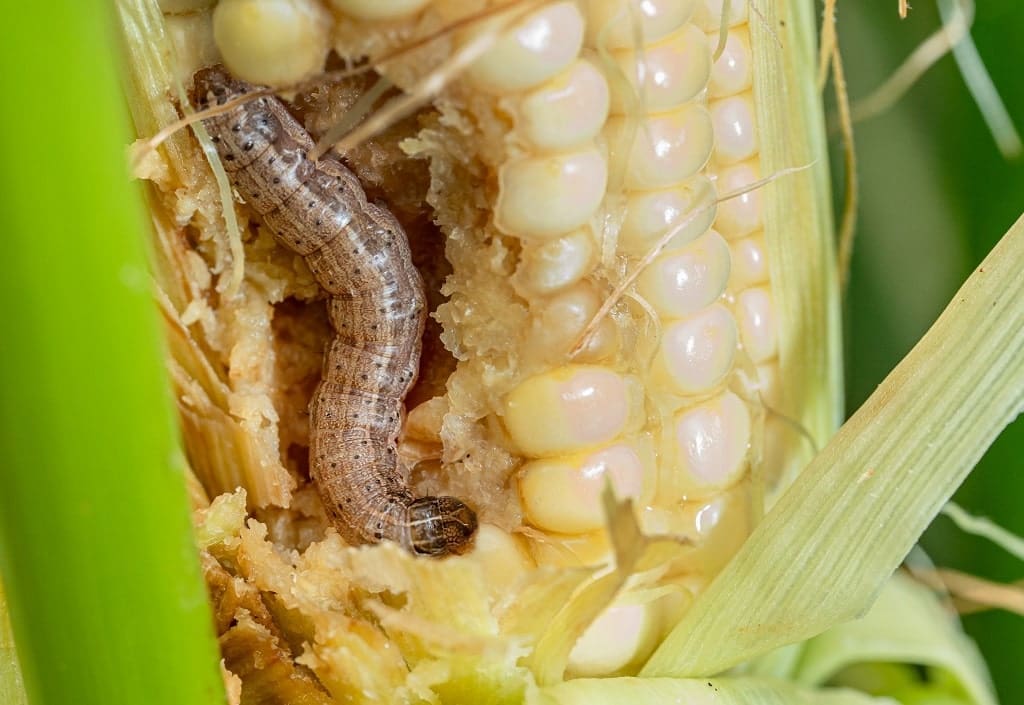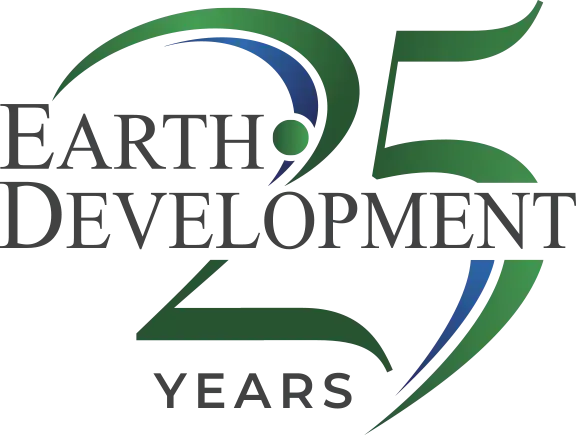The armyworm is just one of many lawn pests that can damage and kill your grass. Not technically a worm, this is a larva of a moth that feeds primarily off grass blades. These larvae very quickly turn into armies, with huge numbers infecting your lawn and causing chaos within just a matter of days.
Let’s take a look in more detail at this pest and how Earth Development helps prevent damage to your lawn.
What Are Armyworms?
Armyworms are a kind of moth larva that don’t just eat grass but also feed on vegetables and a range of other plants if the grass isn’t available. During the larvae stage, this pest is at its most destructive – and a lawn can be eaten and destroyed within a matter of days.
Here’s how to identify armyworms:
Beyond the obvious fact that your lawn will be eaten very quickly by this pest, if you look closely at your lawn, you’ll notice worms that have green, red, yellow, or brown stripes running down their backs and sides. As they grow, they become up to 1.5 inches long. That’s what armyworms look like – but the first thing you’ll notice is how quickly your lawn starts to disappear.
Types of Armyworms
As if armyworms weren’t annoying enough, there are several kinds of armyworms that might affect your yard. Here are some of the most common types of armyworms to look out for:
- Beet Worms: The Beet Worm first arrived from Asia. It is found on every continent except Antarctica. You can identify it by its pale green body and dark-colored head.
- Fall Armyworms: The Fall Armyworm is a light brown color and has dark stripes on both sides of its body. There is also a white mark on its head that looks like the letter “Y”. Typically, these larvae will be active between July and October, and they will usually begin eating grass after a long period of heavy rainfall.
- Southern Armyworms: The Southern Armyworm is more commonly found in the southern states. Its body is dark green, and it has yellow or white stripes running along the side. Its head is a brown-red color.
- “True” Armyworms: This kind of armyworm is typically found east of the Rocky Mountains. It has a smooth green-brown body with white stripes, along with thin orange stripes that can be seen on each side of the worm. There are also four large dark spots on the bottom, and it has an orange head.

Armyworm Lawn Damage
As well as knowing what these larvae look like, you should also know the signs of armyworms.
The main thing you’ll notice is a series of small brown lawn patches. As these larvae spread, the patches will get bigger. Larvae will likely leave blades of grass chewed, with holes or patches across them, leaving behind only the inner part of the blade – making each blade look almost transparent.
Sometimes, larvae may shear the grass entirely to the ground, meaning there will be totally bare spots on your lawn.
How to Kill Armyworms
Now you know what you’re dealing with, let’s take a look at how to get rid of this pest, and how to treat your lawn to prevent infestation.
- Neem Oil: Neem oil is made from the neem leaf and acts as a natural pesticide that doesn’t kill your grass. This actively prevents and kills armyworms.
- Pyrethrin: Pyrethrin is a kind of natural pesticide that is made of crushed and dried flowers. The chemicals in the substance will paralyze the armyworms as soon as they come in contact but won’t kill other insects or harm your grass.
- Bacillus Thuringiensis: This is a kind of targeted bacteria that paralyzes the digestive system within the larvae, killing them quickly. It does not hurt birds or insects and won’t destroy your lawn.
Our team at Earth Development provides all manner of landscaping and lawn management services, meaning we’ll actively prevent infestation and help keep your lawn healthy all year round. We work with business owners, ensuring your outdoor space reflects your professionalism and commitment to your customers.
A healthy lawn means a good-looking property!
Armyworm Removal and Lawn Specialists in the Midwest
Looking for help managing an armyworm infestation, or want to ensure that your lawn isn’t damaged by any kind of infestation this year?
Call Earth Development today, and we’ll connect you with a team of local experts ready to provide frequent lawn maintenance and landscaping services. Get in touch via phone or through our online form, and we’ll give you a free quote and consultation.
